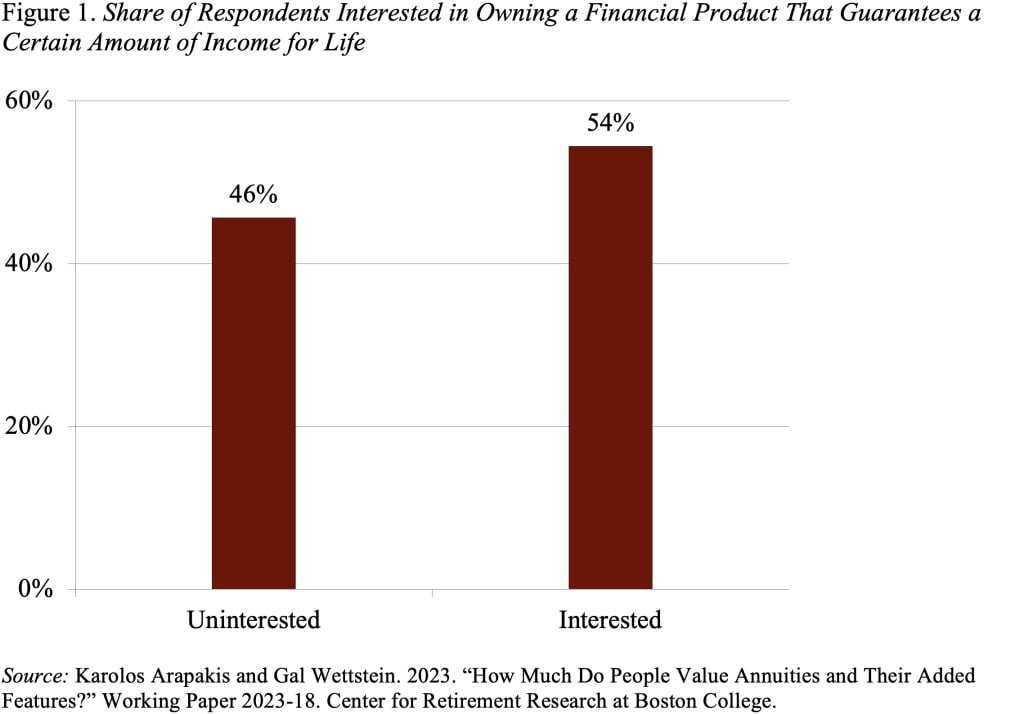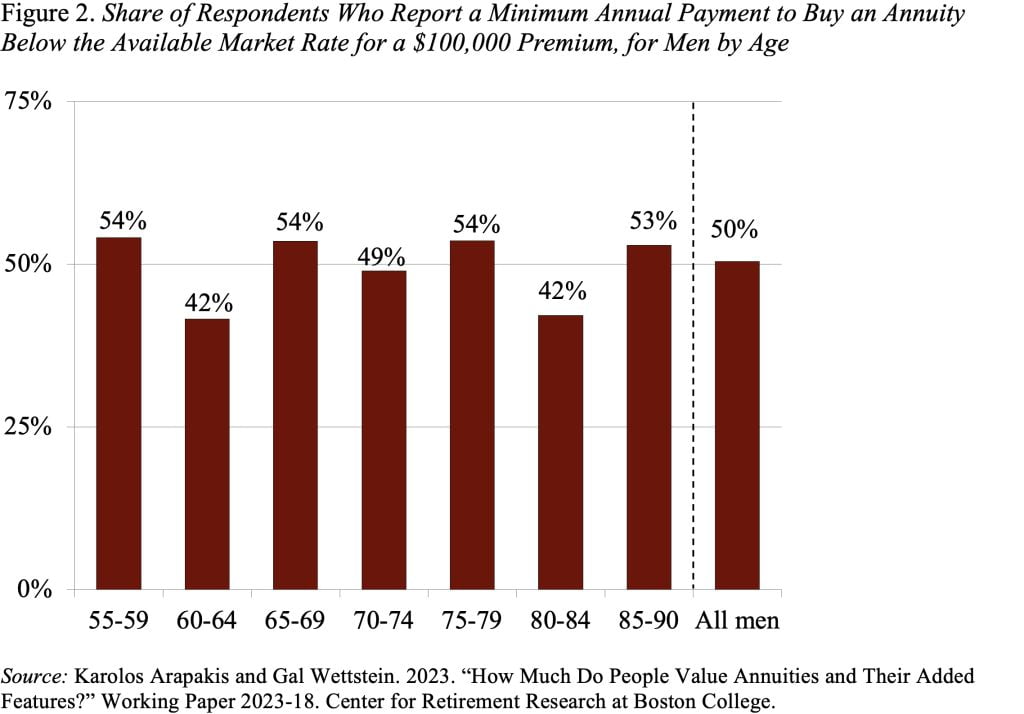
The Appeal of Annuities: People Are Willing to Pay for Products with Lifetime Benefits, Study Shows
Alicia H. Munnell is a columnist for MarketWatch and senior advisor of the Center for Retirement Research at Boston College.
The gap between the desire for annuities and actual holdings likely due to logistical impediments.
My colleagues, Karolos Arapakis and Gal Wettstein, have just published a really interesting paper on the “annuity puzzle.” That is, while economic models predict that many people would be better off with annuities, only a small portion of retirees actually hold an annuity. Economists have spent the last few decades identifying reasons why individuals might not want to annuitize. In contrast, Karolos and Gal find that lots of people seem to want annuities but are stymied by logistical impediments to actually acquiring them.
Their conclusions emerge from a survey, conducted by Greenwald Research in June of 2023, of 1,216 individuals ages 55-95 who have at least $100,000 in investable assets. The analysis included a randomized control trial (RCT) module that split the participants into three groups. In the control group, the trial elicited each consumer’s minimum annual lifetime annuity payment at which they would buy an annuity for a $100,000 premium. Treatment Group 1 was offered the same annuity but with a feature that any remaining premium would be paid to the decedent’s heirs. Treatment Group 2 was offered the same annuity as the control group, but with a liquidity feature whereby purchasers could break the contract and withdraw the remaining premium.
Before the RCT began, all respondents were probed regarding their views on annuities. Seventy-six percent said that theythought it was valuable to own a financial product that guarantees a certain amount of income for life, and 60-76 percent of respondents agreed that products with lifetime benefits provide peace of mind, protect against living a long time, and shield owners from stock market risk. Crucially, 54 percent of those without an annuity said that they were at least somewhat interested in owning a product with lifetime income (see Figure 1).

Direct questions about annuities, however, cannot tell us whether people are likely to buy the product. That is, annuities may be great, but potential customers might simply view them as not worth the cost. To address this issue, the survey asked respondents in the control group how much guaranteed annual income they would require to be willing to pay a $100,000 premium. Roughly half of respondents’ required payments were lower than the payments they could have gotten from annuities sold on the market to customers with their own age and gender at the time the survey was fielded. Figure 2 shows this result by age group for men. The results for women look very similar.

(Surprisingly, the results also show that people were not willing to pay more for annuities with the added bequest feature (offered to Group 1) and access to liquidity (offered to Group 2).)
The finding that 50 percent of respondents are willing to buy annuities at prevailing market rates – far in excess of the share of respondents who actually have an annuity – contrasts sharply with the current focus on explanations for why individuals do not want to annuitize. Instead, the results suggest that people want annuities but face logistical impediments around how exactly to go about buying them.







